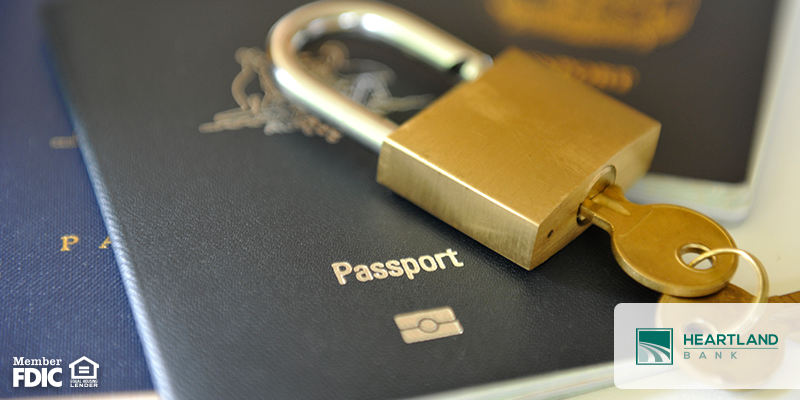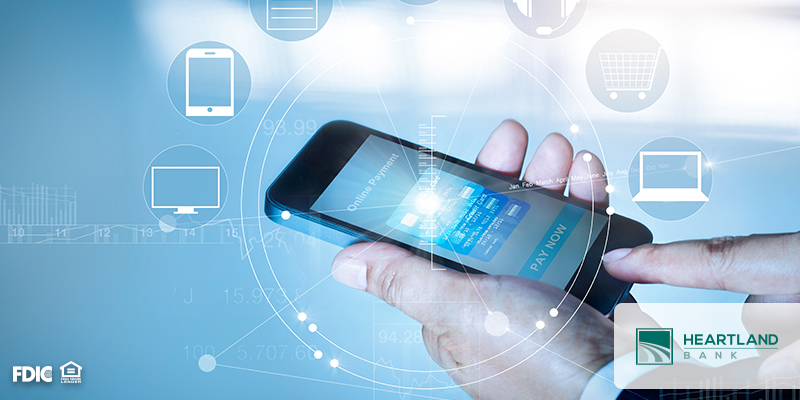Whether you are traveling for work or pleasure, the last thing you want to battle with is having your cyber-security compromised. If knowledge is power, Heartland Bank has created a list of potential threats to your private information and steps to prevent damage while away from home.
Before You Go
Along with remembering to pack a toothbrush, you should also prepare your devices for travel. You should ensure all updates are completed. This will make your systems harder for hackers to penetrate.
You may consider backing up your information on cloud storage. You would hate to have forever lost important documents and photos. Should your information become compromised, having these copies of your private information will be useful. We would also recommend changing all of your passwords prior to leaving and again when you return. It is also extremely important, especially when traveling abroad, to let Heartland Bank know where you will be traveling and when.
While You’re There
Unfortunately, you are at higher risk the more you travel and use the internet abroad. However, this shouldn’t stop you should you use the proper precautions from these threats.
While convenient, public wireless networks are not secure. Nevertheless, if you need to connect, be sure it is a legitimate network by verifying the account with employees. However, your mobile connection is going to be more secure. You are going to want to turn off auto-connect for wifi and Bluetooth as well. If you are able, purchase a VPN (Virtual Private Network), so you have peace of mind while surfing the web. We would recommend staying away from public computers-even the hotel and library. You cannot trust that these are on secure networks, and that Keylogger Malware is not present.
To many people’s dismay, you are being watched in ways like never before. You should get into the habit of guarding yourself at all times. When traveling to fun places, it is tempting to share your location. But waiting to share this information is best, so hackers don’t follow where you are, and maybe even make their way up to your hotel room to take your computer when they know you’re away. This is another reason why you might consider eating meals outside the normal hours, as that is when most hotel thefts occur.
You can’t avoid purchases while on the road, but be aware of ATM skimmers, point of sale compromises and hidden cameras. ATM skimmers have been on the news frequently. If you can avoid using this altogether by sticking to credit cards or Apple Pay on the road, it may make the experience easier. Business card readers may be compromised or a hidden camera could be tracking your pin input, so it’s important to always be aware.
We hope that these tips have informed you to be a cyber-secure traveler. For more information about anti-fraud services, please stop by and speak with our helpful staff!







